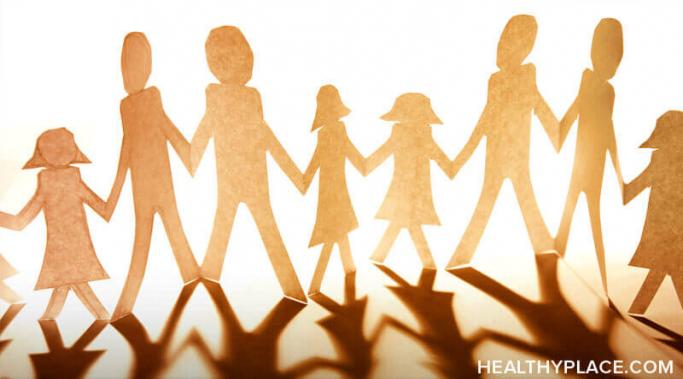Defining your role in mental health support can be tricky in a family situation, especially if you have some sort of professional healthcare background. I had recently qualified as an occupational therapist, and when my brother was diagnosed with chronic anxiety and depression, I put a lot of pressure on myself to be more than just a sister because of that. I wish I could take that back.
People with Mental Illness
I was raised by parents with mental illness. My mother has been diagnosed with a few mental illnesses, and if my father had not passed away at such a young age, he would have been diagnosed as well. Due to this circumstance, I was raised under certain conditions that others were not exposed to. This article is intended to bring attention to some of the characteristics in the childhood of an individual raised by parents with mental illness.
I feel a growing responsibility to normalize mental health discussions outside of dedicated platforms, such as this blog. For people like my brother who live with chronic mental illness to exist stigma-free, we need to demystify the topic of mental illness in the wider community.
A family is comprised of a group of individuals, so it's no wonder there are going to be disagreements now and again. However, in my family, some disagreements have a way of becoming a family meltdown that can cause rifts and a lot of tension between all the members. Here is a guide to surviving a family meltdown.
Supporting someone in denial about their mental health can be a very delicate situation. A friend of mine is living this reality at present -- her partner is exhibiting clear symptoms of mental illness but is not able to have a conversation about it just yet. Supporting my friend has reminded me of when my brother was also in denial about his mental health before he received a diagnosis. Here are some of the things I learned through that experience.
Having a mental illness can affect the meaning an individual experiences in life. I have had multiple family members with mental illness say they don't feel as though they can have an equally meaningful life as their neurotypical counterparts. That's just not true. Here is an article about how to find the meaning of life, written from the perspective of people that suffer from mental illness.
When we're supporting someone with mental illness, I think it's very important to constantly examine how healthy our relationship with that person is. As my brother lives with chronic mental illness, I have first-hand experience of how unhealthy behaviors can easily creep into relationships, even with the best of intentions.
Everyone has different coping methods that they choose to use, and it can sometimes seem like not all coping mechanisms are as helpful as others. There might come a time when you have to come to terms with and accept a loved one's preferred coping method. This is the story of a time I went through that situation.
I have been down a serious Google rabbit hole this past week on the subject of mental illness masking other conditions. The reason for this is personal -- my brother is currently undergoing diagnostic testing for autism. The more I think about this, the more it makes sense that mental illness could inhibit timely diagnosis of other issues.
Nothing is more important to me than the wellbeing of my loved ones, which is why I want the very best for them. When I notice that something could be improved in their lives, especially when it pertains to bettering a mental health situation for them, I desperately want to say something. Here are three things I keep in mind when making suggestions about mental health to my loved ones.









